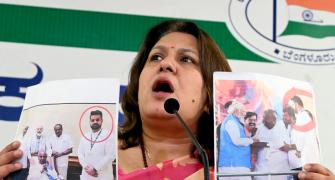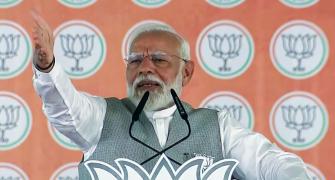Many people, including a few whose opinion must be respected, have said I am wrong. After reading and listening to them, I think I may have discovered the dissonance, namely that there is a lot of confusion between problems that stem from the Industrial Disputes Act and those that stem from the Trades Union Act.
Most people think that the Industrial Disputes Act is the main culprit. But if you read it carefully, barring some tweaking here and there, say, in Section 9A, which makes it just a little bit hard for the employer to change a worker's job, it would be hard to identify the sections that need amending.
What people also don't realise is that the Industrial Disputes Act is a consequence of the Trades Union act. It is basically a process law, designed to take care of the problems that the main law, which allows trade unions, creates.
Consider: The Industrial Disputes Act makes it difficult for employers to shut down even when they are making huge losses and therefore need to go on paying wages. This is the infamous Section 25(O) of the Act, which used to say that you need permission to shut down a firm, but which has been amended since so that if the permission is not forthcoming in 60 days, it is deemed to have been given. This was really a way of letting the politician do nothing when faced with a problem. The same is true of Section 25(M), which lays down what all an employer has to do in order to sack someone. Indeed, all of Chapter 25 is full of loopholes. That is perhaps why it has been so hard to implement.
One can argue, of course, as many people do, that the state should not play this intermediary role. But that would take us into a debate over, and research into, the ethics of businessmen as well, the practice of milking shareholders, and term-lending institutions and asset stripping and fake muster rolls and so on. Who knows what all that would uncover?
There is also the issue of management errors, more so in the public sector, where management is a euphemism for political decisions. Who should have to pay for the wrong decisions of the politicians and the bureaucrats? Politicians at least are voted out. But what about bureaucrats? If Chapter 25 should go, why not delete Article 311 of the Constitution, as well? After all, it makes it impossible to sack a bureaucrat.
In short, if you think the weak need state protection, there isn't much that you can change in the law. If you don't think so, well, what can one say? Let us be like China, where Kenichi Omhae once wrote he was taken to an electronics firm that employed a few thousand workers. No one wore glasses, Omhae noticed. He asked why and was told that the moment a worker needed glasses, she was sacked.
Most complaints against India's labour laws actually relate to the trade unions and the unreasonableness of unionised workers who used to (but don't much any longer) defy the management at every step. The most common irritant pertains to job-descriptions, the "this is not my work" tactic that union members use. Many firms have responded by not allowing unions. Foreign firms, in particular, do their best to see that unions are not formed. So do many new Indian firms.
But here we run into a problem. The Constitution guarantees the right of association as being fundamental to our democracy. This means that, provided the rules under the Trades Union Act are followed, there is no legal bar on forming unions. Those who complain about India's labour laws need to tell us whether they want such a bar.
But if you have unions, you will have disputes, whether real or manufactured, by one side or the other. That is where the much-maligned Industrial Disputes Act comes in, even though as the name suggests, it is mostly just a process thing. It abridges the freedom of action of employers, partly by having a law and partly by asking the state and the courts to mediate.
Also, as has been pointed out by so many people, the real problem seems to be the way the courts interpreted the law, not with the law itself. But many of those interpretations are now being set aside and a newer, more balanced framework is emerging.
So in the end, and after making the minor amendments that the Industrial Disputes Act requires and after nullifying the effect of court judgements, it all boils down to just one thing: should we have unions or not?
If the answer is yes, you will need a process law. If the answer is no, you need to amend Article 19 of the Constitution. And, if so, as I said, why not delete Article 311 of the Constitution as well?
So what is to be to be?








